- Home
- Jeff Mariotte
Serpents in the Garden Page 3
Serpents in the Garden Read online
Page 3
But some weren’t.
The flintlocks resembled those from Earth’s past to a remarkable degree. Kirk had noted that on his last visit, but he had explained it to himself with the supposition that it was a fairly primitive firearm, not hard to make, and its form was dictated by its function to the extent that any design that worked for humanoids—and the people of Neural were physically indistinguishable from humans—would be much the same anywhere.
The other guns, however, were definitely not from Earth’s past. They had common features and looked to have evolved from the flintlocks, but skipping some steps along the way. They were all rifles, lever-action guns with wooden stocks. But those early rifles on Earth had ended in fairly straight butts, and these were curved to fit more snugly against the shoulder. The levers and barrels were made from some dark brown metal, not the brass and blued steel of Earth. Gun sights along the top of the weapons were large and primitive, designed to help the untrained marksman take aim. They were wicked-looking weapons, but there would be no confusing them with any found on Kirk’s home planet.
Most of those carrying the guns were recognizable as Hill People, sharing that tribe’s most prominent features: thick platinum hair, clear, tanned flesh, strong bodies. The men had decorative gems implanted in their foreheads, and the women had similar designs on their cheeks and around the eyes. But there were others in the group, men and women alike, with different aspects, darker hair, physiques that were shorter and broader through the chest and shoulders, heavier brows. All were clothed in a manner similar to what the Starfleet personnel wore, so their dress hadn’t changed. Kirk didn’t recognize any of them.
“These are not Victors,” one of the gunmen said.
“Nor Freeholders,” another replied. “Should we kill them?”
“We are . . . visitors here,” Kirk said, holding out his empty palms to display his lack of weapons. “You are Hill People. We seek my friend, Tyree. My name is Kirk. You might have heard him speak of me.”
At the mention of Tyree, the people exchanged puzzled glances. The weapons were not lowered, but the mood changed from one of confrontation to something else, slightly less tense.
“You know Tyree?” one of the women asked. She had rich, dark hair, and her powerful physicality reminded Kirk of Nona. Unlike Nona, who had favored a garish wardrobe, these women dressed like the men, in plain-colored garb that was more functional than revealing.
“Yes. We’re old friends. I haven’t seen him since . . . since Nona died.”
“He knows of Nona,” another one said.
“I do not trust him. Any of them,” still another offered. This from a man, one of the shorter, darker ones. His eyes were small, his expression suspicious.
Kirk focused on the woman. She was near the front of the pack, and he sensed leadership in her carriage and attitude. “I knew Nona and Tyree, and some others. Yutan and Endel, are they still among you?”
Those names brought more looks and murmurs from the group. “He knows names, that’s all,” the small man said. “Tyree’s name is spoken in every corner of the world, so that means nothing. They are not from here.”
“Which tribe are you from?” the woman asked. “Name it, so we may know where your sympathies lie.”
“I told you, we’re visitors. From far away. You wouldn’t know the place. Just take us to Tyree. He can explain.”
Another of the Hill People moved to the front of the group. He was the tallest one there, almost as big as Titus Hay. “I think we kill them,” he said. “And take their corpses to Tyree.”
“I remember the Hill People as peaceful,” Kirk said. “Have you changed so much in such a short time?”
“Kill them,” the shorter man said. He shouldered his rifle and aimed it at Kirk’s chest.
“No!” the woman cried. She made a lowering gesture with her hand, and the gun barrels were shifted toward the ground. “No killing. We take them to Tyree, as he asks. They are not Victor slavers, and they are unarmed. They pose no threat to Freehold.”
Kirk wanted to ask about “Victors” and “Freehold,” but to display his ignorance might have counteracted the progress he’d made. “We are no threat,” he said. “We are friends to all the Hill People.”
The woman stood there, her gun pointed at the ground, sizing Kirk up. He didn’t see trust in her eyes, or fear. But he didn’t see welcome, either.
“Take us to Tyree, but keep your weapons ready,” Kirk said. “If he does not welcome us with open arms, then you can kill us.”
“Sir!” Burch said sharply.
He didn’t respond, just held the woman’s gaze.
She made up her mind. Her stance softened and she took her finger off the trigger, held her weapon loosely in her hands. “Very well. We will take you to Tyree.” At grumbling from behind her, she snapped, “And if he does not know you, you will all die.”
“Deal,” Kirk said. Possibly a bad one, but a deal just the same. Tyree had been his friend, but the last time they’d been together, Tyree’s wife had just died, and Kirk had been part of the events leading to her death, however inadvertent. It was possible that his opinion of Kirk had soured over time.
He turned to his companions. “We’ll be fine,” he said. “Just cooperate with them and we’ll get this all straightened out.”
Burch shot him an unhappy glare. Rowland didn’t look any more enthusiastic than the security officer did. Hay’s expression never seemed to change; he wore his relaxed half-smile, as permanent as a tattoo.
The Hill People led them down toward the walled town that had swelled to envelop the old campsite Kirk remembered. The cliffs housing the cave that had been such a central part of their camp were outside the walls, but otherwise, the walled compound contained all the land where the tents and lean-tos had been pitched, and considerably more besides. It had aspects in common with forts from frontier America, Kirk realized. The logs used to build the wall had been hewn into points at the top. Lookouts stood on platforms high up on the walls, watching over the landscape. Kirk saw a couple of them nod to the group as it approached. A double gate big enough to allow access by people or wagons, if they had them, was centered in the wall they approached, and at a signal from one of the lookouts, he heard the efforts of those on the inside to draw back the bar that held the gate fast.
As they waited for the gates to open, one of their captors called up to a lookout. “Alert Tyree,” he said. “These strangers asked for him.”
“They look strange indeed,” the lookout replied. She held one of the lever-action rifles. Other lookouts had flintlocks, or bows and arrows. “I will tell him.” She disappeared from the wall. Kirk heard a mumbled conversation from inside, and after a few moments, a new lookout appeared.
“The settlement is much bigger than last time I was here,” Kirk said to the woman who seemed to be in charge. “And the wall is new. Is your conflict with—”
She poked him, hard, with the barrel of her rifle. “Silence! Save your talking for Tyree.”
Kirk decided not to press her. This new version of the Hill People’s home was considerably less friendly than the last. A nagging concern grew in the pit of his stomach. The enlarged, walled town, the distrustful attitudes, all hinted at a people at war. When he had left Neural, the Hill People and the Villagers had been on unfriendly terms, which had been a surprise, since on his first visit they’d lived in peace. Kirk had hoped that by arming the Hill People, he might have spurred a new peace initiative, even if it was born from the threat of mutually assured destruction.
Instead, it appeared that hostilities had worsened.
What role he had played remained to be determined. The fact that he might have played any weighed heavily on his conscience. As Kirk walked through the gate, arms raised in surrender, he looked for familiar faces and longed for a way to set things right, to atone for any harm he might have done these once-gentle people.
What greeted the landing party were hard-set jaws and cold eyes. Peo
ple were missing limbs. Some sat on chairs outside their homes, malnourished. There were others he didn’t see but only sensed from the flutter of a curtain or the bolting of a door as he and his fellow captives were paraded down the street. He saw suspicion, fear, and hatred directed toward them. Any atonement would be too little; it would never bring back the dead or heal the brutalized. Actions had consequences. Although Kirk tried to spread the seeds of peace, he knew that some of his efforts had not succeeded, and in many cases he never knew the results.
This time, his failure appeared to have been spectacular.
Four
“James!” Tyree cried as they entered a large building just off an open plaza at the town’s center. The mud walls were at least two feet thick, with a few slits to let in light and air. Guards stood sentry outside the only visible door. “It is you!”
“It is,” Kirk said. He glanced at the woman whose gun was pointed at his kidney. She gave the briefest of nods, and Kirk approached his friend. Tyree had aged more than Kirk in the intervening years—new, deep crevices ran from beside his nose to the corners of his mouth, and his eyes were tired and sad—but his smile seemed to erase the years. He sprang from a seat that, despite its plainness, had the aspect of a throne and rushed to meet Kirk in the center of the big room. He opened his arms wide and Kirk stepped into them, embracing his old friend. “It’s good to see you, Tyree.”
“And you as well.” He stepped back, clapped Kirk twice on the upper arms. “Welcome to Freehold. What do you think?”
“It’s . . . different. Freehold, you call it?”
“We are too big now to be a campsite without a name. We number too many.”
“Some of them aren’t Hill People,” Kirk observed.
“True. We have joined with other tribes, other races.”
“Why?”
“To defend ourselves.”
“Against the Villagers?”
“Their village has also changed its name, James. They call it Victory, now. As if they had already won the war.”
“There’s still a war?”
“It never ends,” Tyree replied. “The Victors do not simply attack, overwhelm our defenses, and crush us, although I believe they could. Instead they let us continue to breed, to grow, and they take us a few at a time to serve their needs. Freehold is the last bastion of the free people, and we will continue the fight until all are free once more.”
“Freedom’s a noble goal,” Kirk said. “But the cost appears to be high, too. You’re living behind walls. I remember the Hill People as a carefree people.”
“Carefree?” Tyree echoed. “Perhaps once, but no longer.” He flashed a quick grin, but it was an icy one. “We can talk of such matters later, though. Who are your friends?”
Kirk made introductions, and Tyree, in turn, introduced them to the various people gathered in the big room. “Go,” Tyree said when that was done. “Tell the rest of Freehold. James Kirk and his friends are Freehold’s friends. They are to be accorded every courtesy.”
“Thank you for the hospitality, Tyree,” Kirk said. “We appreciate it a great deal.”
Tyree put a hand on Kirk’s shoulder. “You are my brother, James.” When he lowered his hand, through, sadness had come back to his eyes. “Seeing you reminds me of Nona.”
“I know,” Kirk said. “I am sorry.”
“You have nothing to regret,” Tyree said. “I understand what happened—that it was her actions, not yours, that led to her death. Still, you were there. You kissed her—”
“I’m sorry for that, too. More than I can say.”
“It was not you, it was her power. The mahko root and the abilities of a Kahn-ut-tu. You could not resist. I know you tried. This does not mean that my heart does not ache when I see you and think of her.”
“We can leave,” Kirk said. “We need to stay here, on Neural, for a few weeks, to . . . investigate some issues. But we don’t have to stay in Freehold.”
“Nonsense!” Tyree tried on a smile again. It looked genuine for an instant, but keeping it there was an effort of will. “We are brothers. You will stay in Freehold, as our guests.”
“Then we accept your hospitality, happily,” Kirk said. “I hope we’ll have a chance to get reacquainted, Tyree. I’ve missed you.”
“And I you, James. And I you.”
* * *
“Captain, I need to make those improvements we talked about, to the Bussard collectors. I cannae make any progress on beefin’ up . . .”
Captain Will Decker interrupted his chief engineer. Montgomery Scott was pacing before his desk, and Decker patiently said, “We’ve talked about this, Commander. Until the Corps of Engineers tests and signs off on your concept—”
“Captain Decker, if ye don’t mind, you asked me—you ordered me—to get the Enterprise refitted and ready for space. I’m telling you, we need this to get her ready for space!”
Decker leaned back in his chair. “Sorry, Scotty. I like your idea, as I told you the four previous times you’ve mentioned it. I really do. But Command has its own procedures. They like to do things according to their rules. You and I know that has ever been the case with bureaucracies, and likely always will be. I’ll keep pushing, though, all right? See if I can’t shake something loose.”
“I can do that testin’ myself,” Scott humphed. “In half the time. SCE’s got good people, but they’re busy.”
“Trust me,” Decker said. “I understand your frustration. I’ll talk to Command, all right?”
“Aye, Captain,” Scott said, biting back the frustration so it didn’t sound in his voice. He understood that innovations had to be tested, and he even understood why testing in a controlled environment was preferable to in-service testing. At the same time, he knew that his idea would work. It was less a whole new concept than a series of structural improvements to existing technology. Each would build upon the last, and although the difference in performance would be marked, he wasn’t creating any safety issues.
More than that, he’d been tasked with getting the Enterprise spaceworthy on a specific timetable, and waiting for SCE to sign off on his improvements was throwing a wrench into the works. He was being told to do it now, while at the same time being deprived of the capability to make a change he considered necessary.
Decker was looking at him, as if waiting for something. Scott liked the man, but he would never feel toward him the way he did toward James T. Kirk. Will Decker came from a distinguished lineage—he was the son of Commodore Matthew Decker of the Constellation, who had sacrificed his life to save countless others from a doomsday device, and Matthew Decker came from a long line of Starfleet officers. Will had served honorably, and Kirk had personally selected him to take over the Enterprise upon Kirk’s promotion.
“I appreciate anything you can do, Captain,” Scott said finally.
“I’ll let you know, Mister Scott. I’ll do what I can.”
Scotty did appreciate that. But Captain Decker wasn’t the obstacle, and there was only so much he could do to overcome the real hurdles ahead.
* * *
The Enterprise’s chief engineer found Nyota Uhura and Pavel Chekov working at their usual bridge stations. Since the ship was in space dock, he assumed they were doing system checks. They took their jobs seriously, as he did, and would strive to make sure that everything was fully functional before they cast off.
“I love Starfleet,” he said. “But like any bureaucracy—” He realized he had been complaining since he’d arrived. Uhura and Chekov watched with interest either real or feigned. “Sorry,” he said. “You’re busy, both of you.”
“It’s all right, Scotty,” Uhura said. She sat forward in her chair, which was swiveled away from the communications station to face where he leaned against a bulkhead near the turbolift door. “We’re old friends. If you can’t complain to us, what good are we?”
“She’s right,” Chekov agreed. “You can went to us any time.”
“I can what,
lad?”
“Went,” Chekov repeated. “Blow off steam. Complain.”
“Vent,” Uhura translated.
Scott grinned, letting Chekov know he’d been teasing. “That’s why you’re good at your job, Nyota. You can understand anybody.”
“Sometimes a universal translator helps,” she said.
“Once in St. Petersburg, I saw the home of the man who inwented the uniwersal translator,” Chekov said. “Pyotr Illyich Uniwersal, his name was.”
The three of them broke into laughter. After a minute, Scott straightened his spine. “I’ll get back to it,” he said. “It’s frustrating, though, to spend so much time waitin’ when we should be getting back into action.”
“It’ll happen soon enough, Scotty,” Uhura said. “I’m enjoying being home for a while. I’m in no hurry to leave.”
The turbolift doors opened as the engineer stepped toward them. “Well, that’s good,” Scott said as he stepped inside. “Because no hurry is exactly the timetable we’ve got at the moment.”
Five
“Freehold is not as you remember it,” Tyree said. His tone indicated that he thought that was a good thing.
Kirk was trying to withhold judgment until he had more information. “Not at all,” he said. He touched the black bars tattooed from Tyree’s right shoulder and down his arm. More than twenty of them. “Nor are you. What do these signify?”
“Victor lives I have taken,” Tyree said. “Some make necklaces of ears, or fingers. That, to me, is unclean. But most of us choose to mark the lives in some way.”
“Before, you didn’t want to kill. You fought with Nona about it.”
“She was right,” he said, bitterness lending an edge to his voice. “I was wrong. I have since learned better.”
Tyree was leading him around the town. Two guards followed, a dozen paces back, providing them a modicum of privacy. Tyree hadn’t needed guards the last time Kirk had been to Neural. This Eden was not the paradise it had once seemed.
Rowland, Burch, and Hay had gone to the guest quarters generously offered them, knowing that Kirk would recount what he learned. Tyree took Kirk to the wall, showing him defensive positions, the system of walkways, ladders, and stairs that enabled the quick deployment of personnel to any point, and the weapons and equipment storage lockers at the foot of the wall. It was an impressive operation, and Kirk said so. “You seem focused on defense,” he said. “But I thought you believed the Villagers—sorry, the Victors—could overcome all your defenses if they wanted to.”

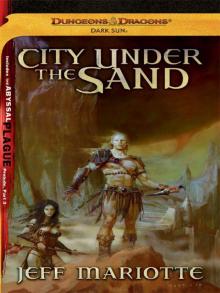 City Under the Sand
City Under the Sand The Burning Season
The Burning Season Sanctuary
Sanctuary Winds of the Wild Sea
Winds of the Wild Sea Serpents in the Garden
Serpents in the Garden Close to the Ground
Close to the Ground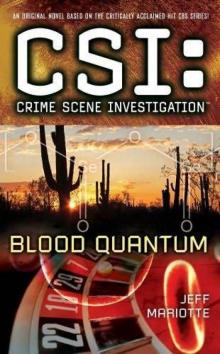 Blood Quantum
Blood Quantum Brass in Pocket
Brass in Pocket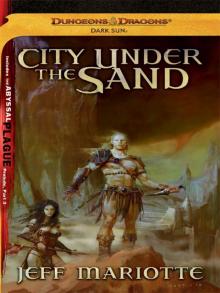 City Under the Sand: A Dark Sun Novel (Dungeons & Dragons: Dark Sun)
City Under the Sand: A Dark Sun Novel (Dungeons & Dragons: Dark Sun)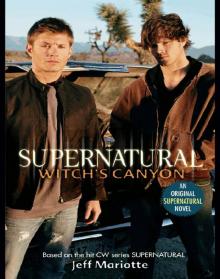 Witch's Canyon
Witch's Canyon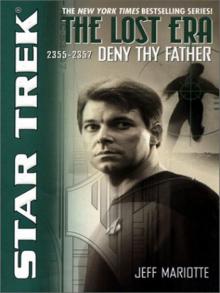 STAR TREK: The Lost Era - 2355-2357 - Deny Thy Father
STAR TREK: The Lost Era - 2355-2357 - Deny Thy Father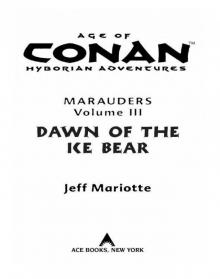 Dawn of the Ice Bear
Dawn of the Ice Bear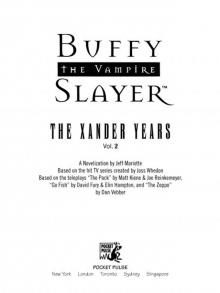 The Xander Years, Vol.2
The Xander Years, Vol.2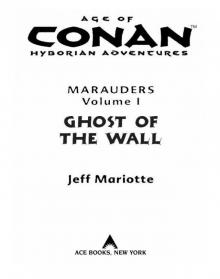 Ghost of the Wall
Ghost of the Wall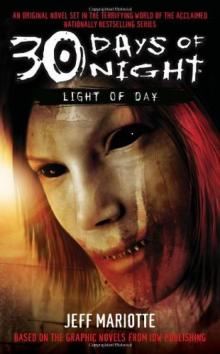 30 Days of Night: Light of Day
30 Days of Night: Light of Day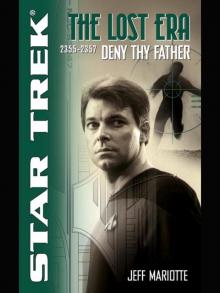 Deny Thy Father
Deny Thy Father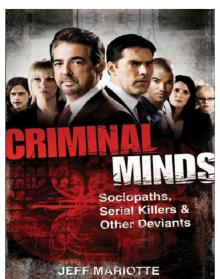 Criminal Minds
Criminal Minds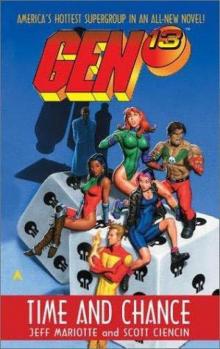 Time and Chance
Time and Chance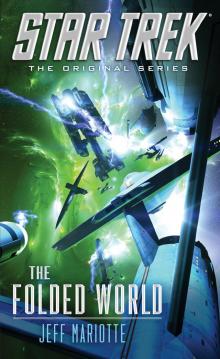 The Folded World
The Folded World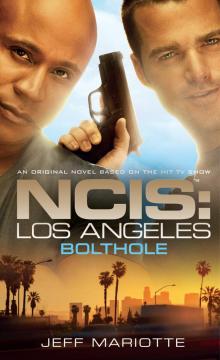 Bolthole
Bolthole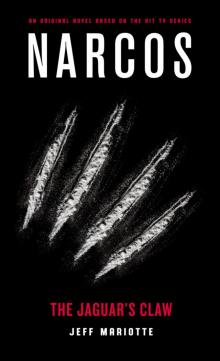 Narcos
Narcos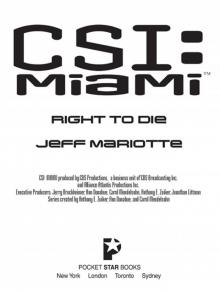 Right to Die
Right to Die